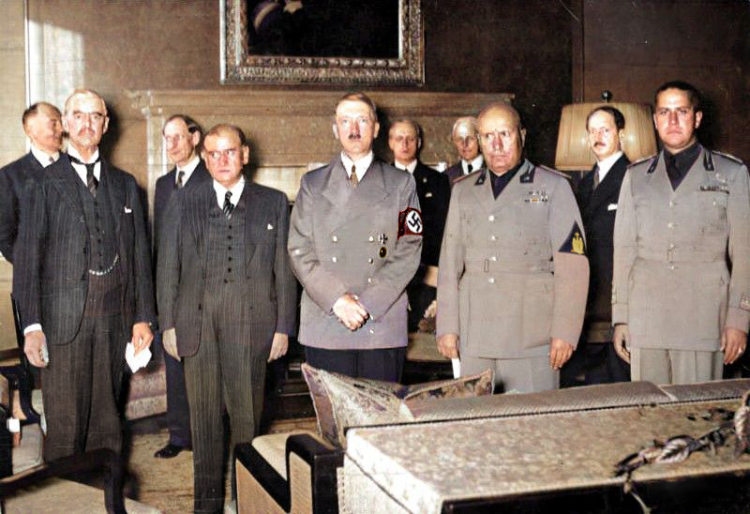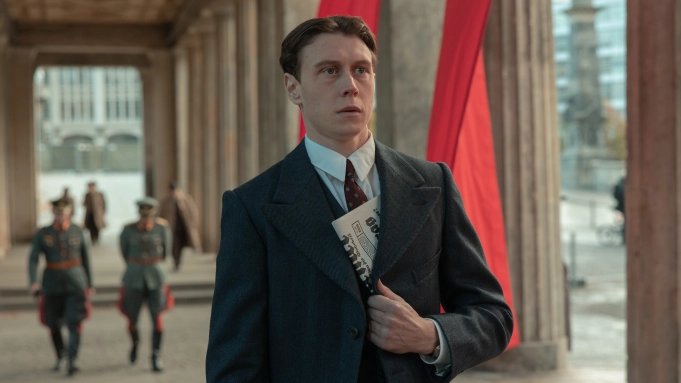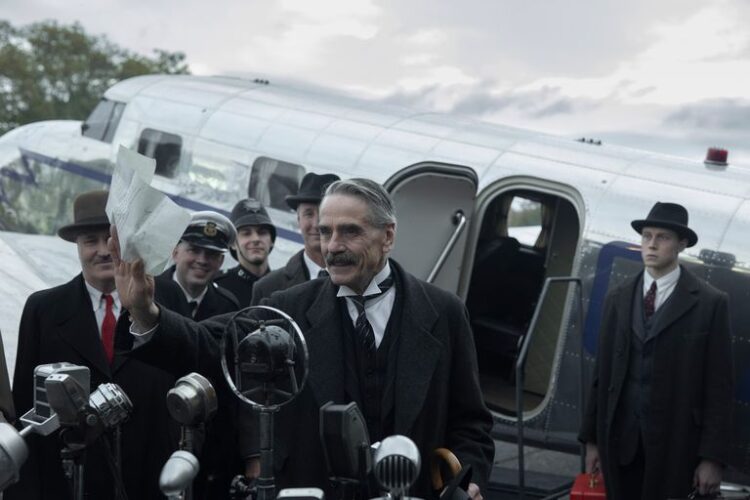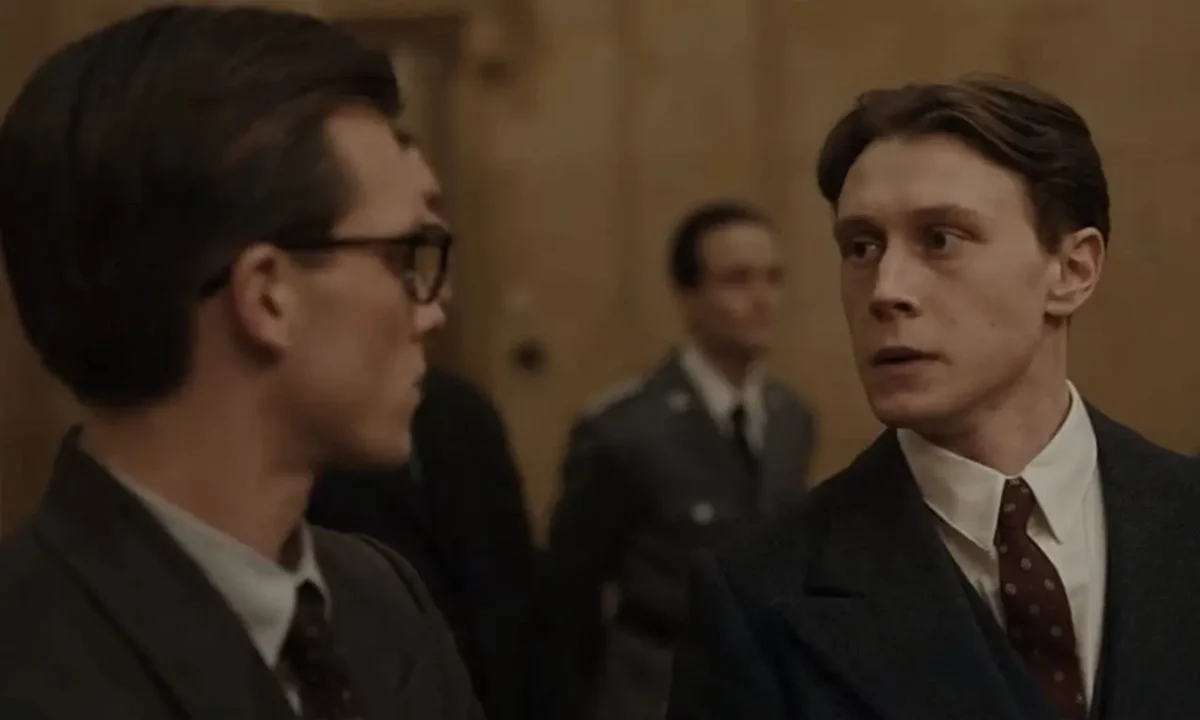Munich: The Edge of War transports viewers into the realm of the imagination, asking them to imagine two “what if” moments in European history.
What if Britain and France had steadfastly resisted German aggression and refused to hand over the Sudetenland on a silver platter to Adolf Hitler? And what might have happened in Europe had Hitler been assassinated?
Munich: The Edge of War, a Netflix drama combining fact with fiction and based on a novel by Robert Harris, delves into these intriguing imponderables in a two hour-and-eleven-minute film directed by the German director Christian Schwochow.
Switching between London and Berlin, this alternately ponderous and exciting movie revolves around the 1938 Munich conference, during which British Prime Minister Neville Chamberlin and French Prime Minister Edouard Daladier capitulated to Hitler’s demand and allowed him to annex the Sudetenland, a 6,500 square kilometre section of northern Czechoslovakia inhabited by a majority of ethnic Germans.

Chamberlain mistakenly believed that if he appeased Germany just this once, Hitler would cease making territorial demands elsewhere in Europe.
The fictional aspect of the film comes into play with the introduction of the two lead characters. Hugh Legat (George MacKay), a British civil servant, works in Chamberlain’s office. Paul Von Hartmann (Jannis Niewohner), a German diplomat, attended Oxford University with Legat. MacKay and Niewohner deliver credible performances in their respective roles.

In the opening scene, set in 1932, the pair enjoy each other’s company on the campus of the university. As they chat, Hartmann foresees a new era dawning in Germany. Their paths cross again six years later, when Europe is on the cusp of yet another conflagration.
By 1938, Hitler is seriously thinking of annexing the Sudetenland. A few of his generals are opposed to the idea, fearing it will spark a war with Britain and France. Chamberlain (Jeremy Irons), recalling the horrors of the last world war, is intent on preventing another one. Irons, austere in appearance, looks remarkably like the figure he portrays and delivers a convincing performance.
By contrast, Hitler has no qualms about igniting a conflict. He intends to extend German domination over Europe through military conquests. His plan is contained in a top-secret document Hartmann has in his possession. He obtained it from Helen Winter (Sandra Huller), his lover and a secretary in the Foreign Ministry. He and Winter are anti-Nazis and despise Hitler’s regime.

Chamberlain, in the meantime, informs the House of Commons that Hitler has postponed the mobilization of his armed forces and is willing to discuss the future of the Sudetenland with him, Daladier and his Italian ally, Benito Mussolini, at a special conference in the southern German city of Munich, where a good part of the film was shot.
On the eve of the momentous meeting, Legat is dispatched to Berlin to obtain the secret memorandum from Hartmann. By now, Hartmann has moved up in the ranks and is personally providing Hitler with summaries of foreign press coverage of the crisis. Germany, too, is awash with public displays of blatant antisemitism. The German actor Ulrich Matthes is miscast as Hitler in terms of his physiognomy. Hitler is portrayed as a narcissist who trusts no one.

At his rendezvous-vous with Legat, Hartmann issues a harsh warning, saying that Hitler will be emboldened if Chamberlain signs an agreement permitting Germany to annex the Sudetenland. Having given Legat the incriminating German document, Hartmann asks for a meeting with Chamberlain.
Reluctantly, Chamberlain consents to see Hartmann, but gives him only three minutes to present his case. Hartmann delivers a passionate denunciation of Hitler and his territorial ambitions and begs Chamberlain not to cooperate with him in the carving up of Czechoslovakia. Dismissing Hartmann’s argument, Chamberlain reiterates his wish for an accommodation with Germany and a lasting peace in Europe.
In the wake of the conference, Hartmann brings Hitler up to speed on the foreign reporting of it. He has a pistol in his leather satchel and is determined to kill Hitler, but will he even try to carry out his mission?

As Chamberlain leaves Germany, one of his advisors cautions him not to place his trust in Hitler. Certainly, Legat is certain that war is inevitable.
Within a year of the Munich conference, Germany invaded Czechoslovakia and Poland, underscoring the futility of Chamberlain’s appeasement policy.
Chamberlain, having been discredited, was succeeded by Winston Churchill. Shortly afterward, he died, his reputation in tatters.
